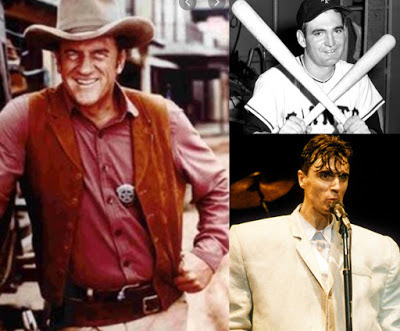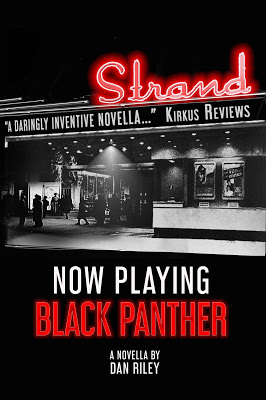Climbing Mt. Ulysses, Part II: The Ascent
 A Joycean puzzle for Ulysses insiders only
A Joycean puzzle for Ulysses insiders onlyIn one of my first college compositions I itemized the contents of our family “junk” drawer…everyone has one: rubber bands, keys for locks that no longer exist, a souvenir ashtray from Niagara Falls, broken pencils, very old Lifesavers, grocery store coupons, a doorknob, birthday candles, a screwdriver, a small spring that seems useless but you don’t dare throw it away.
My freshman lit instructor was unimpressed. “It’s a list”, he said with mild damnation. I was not at all familiar with James Joyce at the time, but if I had been I would’ve argued that it was Joycean. Joyce’s Ulysses is a Sears & Roebuck catalog of lists. The list of lady items on a trunk I referenced in last week’s post is just one of a multitude that appear throughout the book. A rule I’ve always tried to follow with my writing is that if no one gets it, the problem is with the writing. That is not a rule that applies, though, when just some one doesn’t get it. If one person doesn’t get it, it’s more complicated depending on whom the disapproving person is and when in the creative process the disapproval gets expressed. After your book has made the bestseller list? Well, then, Pshaw! But if it’s in the delivery room and the head is just peeking through and the attending critic shrieks, “It’s horrible!”, an abortion may ensue…and that could be a mistake. In my encounters with the lists in Ulysses I wondered what the impact may have been on Joyce if he had my comp instructor in college. Would he be ruined for writing lists for life? Would it have led to a more streamlined, less complex, Ulysses? Or would it have shaken Joyce’s confidence in his writing so much that he never would have dared write his masterpiece? Joyce’s confidence in writing Ulysses is no small matter. I’m in total awe of it. As much as he was consciously reimagining Homer’s Odyssey, he was still striving for something wholly original that would confound critics, scholars and readers for ages…and yet still appeal to them. That was a gamble that has clearly paid off. But what was it like when he was embarking on a book that would push all kinds of boundaries in fiction? Seven years writing a book that would dare readers to accept stream-of-consciousness, obscure allusions, punctuation pandemonium, nonlinear story telling, an overall veneer of chaos. Brazillian writer Paul Coehlo condemns it all: "Today writers want to impress other writers," he says. "One of the books that caused great harm was James Joyce's Ulysses, which is pure style. There is nothing there.” Coehlo claims that the job of the modern writer is to make the difficult easy. He speaks for an era where a high premium is placed on the mass marketing potential of books, where books and courses abound telling writers how to write bestsellers, where the highest praise that can be made of a work of fiction is that it would make a great movie or Netflix series. The writers of our popular culture write for instant gratification; Joyce who was not above the allure of celebrity was nonetheless writing for the future. He wanted to emulate Homer not only in his storytelling but in his endurance. The most revelatory insights to emerge for me from Ulysses was how of our time Joyce is. On universal guaranteed income
“I’m, he resumed with dramatic force, as good an Irishman as that rude person I told you about at the outset and I want to see everyone, concluded he, all creeds and classes pro rata having a comfortable tidy-sized income, in no niggard fashion either, something in the neighbourhood of £ 300 per annum. That’s the vital issue at stake and it’s feasible and would be provocative of friendlier intercourse between man and man. At least that’s my idea for what it’s worth. I call that patriotism. ”On exploitation
Wine, peltries, Connemara marble, silver from Tipperary, second to none, our farfamed horses even today, the Irish hobbies, with king Philip of Spain offering to pay customs duties for the right to fish in our waters. What do the yellowjohns of Anglia owe us for our ruined trade and our ruined hearths? And the beds of the Barrow and Shannon they won’t deepen with millions of acres of marsh and bog to make us all die of consumption?On deforestation
—As treeless as Portugal we’ll be soon, says John Wyse, or Heligoland with its one tree if something is not done to reafforest the land. Larches, firs, all the trees of the conifer family are going fast.Joyce’s style, which Coehlo dismisses, is actually many styles…and anticipates styles to come. Check this passage out and try not to think of the styling of Dr. Seuss or Lin-Manuel Miranda:
“—Save them, says the citizen, the giant ash of Galway and the chieftain elm of Kildare with a fortyfoot bole and an acre of foliage. Save the trees of Ireland for the future men of Ireland on the fair hills of Eire, O.”
“One rapped on a door, one tapped with a knock, did he knock Paul de Kock with a loud proud knocker with a cock carracarracarra cock. Cockcock.Joyce’s humor runs the full gamut from the sublime to the ridiculous to the epic. At one point Leopold Bloom goes to put on a kettle of tea:
Tap.”
He removed the saucepan to the left hob, rose and carried the iron kettle to the sink in order to tap the current by turning the faucet to let it flow.That goes on like that for another 150 words, and then:
Did it flow?
Yes. From Roundwood reservoir in county Wicklow of a cubic capacity of 2400 million gallons, percolating through a subterranean aqueduct of filter mains of single and double pipeage constructed at an initial plant cost of £ 5 per linear yard by way of the Dargle, Rathdown, Glen of the Downs and Callowhill to the 26 acre reservoir at Stillorgan, a distance of 22 statute miles, and thence, through a system of relieving tanks, by a gradient of 250 feet to the city boundary at Eustace bridge…
What in water did Bloom, water lover, drawer of water, water carrier, returning to the range, admire?It goes on like that for another 400 words. So that when you come upon Joyce writing the words, “To cut a long story short”, it arrives with perfectly steeped hilarity. Sorry, Paul Coehlo, it is not at all true that “there is nothing there."
Its universality: its democratic equality and constancy to its nature in seeking its own level: its vastness in the ocean of Mercator’s projection: its unplumbed profundity in the Sundam trench of the Pacific exceeding 8000 fathoms: the restlessness of its waves and surface particles visiting in turn all points of its seaboard: the independence of its units: the variability of states of sea: its hydrostatic quiescence in calm: its hydrokinetic turgidity in neap and spring tides…*
* And I fully realize that lifeless on a page like that such text seems near bureaucratically awful, but again hearing it read on an audio book by a talent like Jim Norton raises it to poetic heights. You've heard about people who could read the phone book and make it sing? That's Jim Norton.
Next week, Climbing Mt. Ulysses, Part III: Woman on Top
Herewith a book considerably shorter than Ulysses Now Playing Black Panther

Published on August 23, 2020 09:01
No comments have been added yet.



